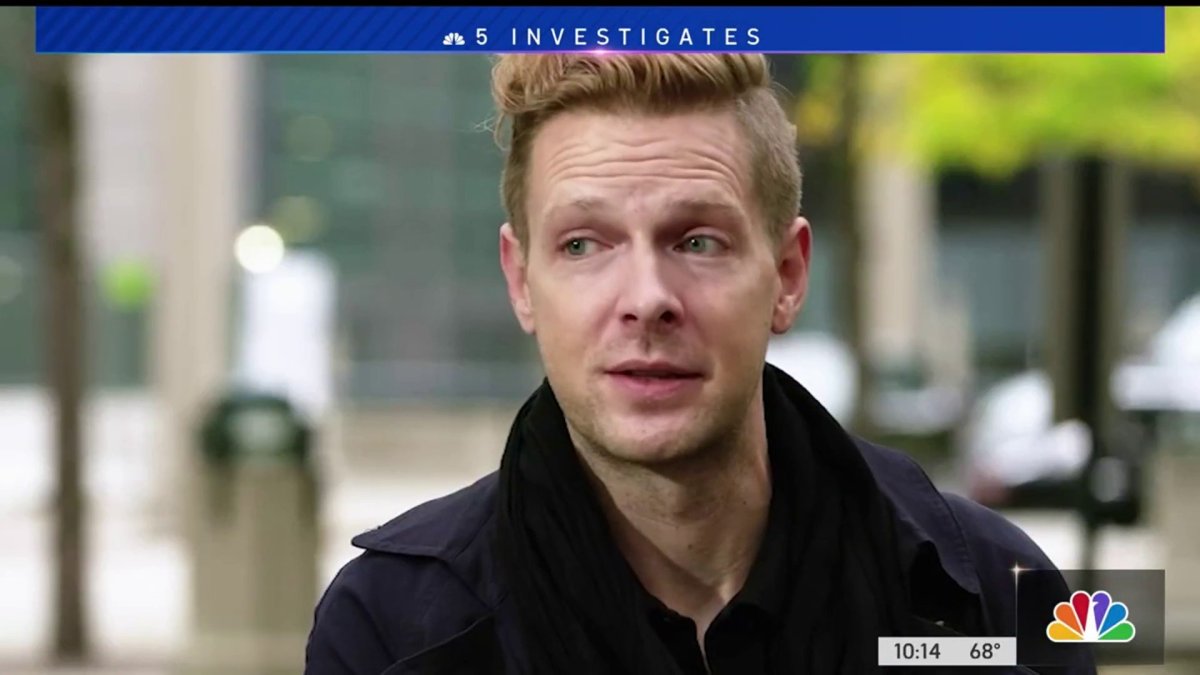
The Illinois Crime Victim Compensation Fund was set up to help cover the costs victims endure. But NBC 5 Investigates found most victims get nothing at all. We analyzed 10 years of claims and found far fewer people filing these claims each year, perhaps because the state is denying far more claims that it awards. NBC 5’s Rob Stafford has…
Richard Pallardy was walking through his Logan Square neighborhood back in February 2017 when the unthinkable happened.
"I had seen them sitting at the light and just when I started crossing, they just kind of whipped out and hit me on my left side," Pallardy recalled.
The hit-and-run driver knocked Richard off his feet, and he flew across the car’s hood and tumbled onto the street.
"My head and my face smashed into the pavement and I sat up just dazed," Pallardy said. "I was bleeding, my face was pretty banged up, and that was painful."
Feeling out of the loop? We'll catch you up on the Chicago news you need to know. Sign up for the weekly Chicago Catch-Up newsletter here.
The impact broke his nose and cheekbone. He suffered a sprained wrist and bruised body. Facing thousands of dollars in medical and physical therapy bills that his medical insurance would only partially cover, Richard applied to the Illinois Crime Victim Compensation Fund which helps cover the costs victims endure.
The state set up the compensation fund, run by the Illinois Attorney General’s office, 48 years ago to help crime survivors pay for everything from funeral expenses, lost wages and medical bills. The fund does not use taxpayer money. The money comes from the fines and restitution criminals are required to pay after convictions.
"I would say most of the people I talked to on the phone were borderline hostile. They were not pleasant people," Pallardy said, adding that he felt state workers who took his application were often rude.
Local
After a year-and-half, he was finally able to recover $9,440.17 not covered by his medical insurance but is still attempting to get $5,000 more for physical therapy. Victims can apply for up to $27,000 in reimbursement.
But NBC 5 Investigates found most victims get nothing at all. We analyzed 10 years of claims and found far fewer people filing these claims each year. Only a third of crime victims even apply now, compared to 10 years ago, perhaps because the state is denying far more claims that it awards. In fact, you have just a four-in-10 chance of receiving any money and that’s assuming you’ve been able to navigate the cumbersome process.
"This is a program that historically had a lot of problems," said John Maki, a director with the Illinois Alliance for Safety and Justice, a national justice reform organization. Maki authored a 2019 report on the Illinois crime victim program which found it sometimes hurts the victims it’s supposed to help.
"Historically, it has re-victimized people, re-traumatized people," Maki noted. "This is a program that can seem like an audit, like an inquiry into the victim's life, and when someone’s been victimized, lost a loved one, to repeatedly ask what happened to you, to ask if you’re at fault.”
Once victims apply for the program, the Illinois Attorney General’s office investigates their claim and files a report with the state court of claims which makes the final decision. The Attorney General’s Office receives an average of $8.5 million annually to operate the crime victim compensation program.
"This administration has to be committed to making this more victim centered," Maki added. "If It’s working well, I think it can restore trust in government. It can meet people at their worst moment, it can address their basic needs."
Maki says Illinois Attorney General Kwame Raoul has made positive changes and retrained employees. In August 2022, the state is increasing the amount victims can receive up to $45,000, from $27,000.
Richard Pallardy says he had to fight to get reimbursed for his injures and hopes the office hires more people who are less bureaucratic and more sympathetic.
"The last thing you would want a program like this to do is put people in a position where they have to endure more and more conflicts in their lives," Pallardy said. "This should be something that’s making their lives easier and better. And in my experience, it’s not doing that."
Illinois Attorney General Kwame Raoul said in a written statement emailed to NBC 5 Investigates that when he took office in January 2019, one of his priorities was to "strengthen Illinois' Crime Victim Compensation Program and remedy its historical shortcomings."
Raoul noted some of the changes that his office has made included removing some of the complicated bureaucracy in the application process, making applications available online, increasing trainings and community outreach and expanding reimbursement for counseling expenses.